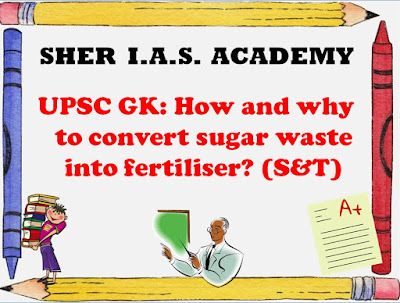For every litre of alcohol they produce from fermentation of sugarcane
molasses, distilleries generate 10-15 litres of wastewater effluent or
“spent-wash”. The 300-odd molasses-based distilleries in India churning out
2.5-2.6 billion litres of alcohol annually, thus, also discharge 30-35 billion litres of this hazardous
residual liquid, which, if disposed untreated, can contaminate surface and
ground water.
The Central Salt & Marine Chemicals Research Institute (CSMCRI)
here has developed a process to separate the main source of pollution — potash and biodegradable organic matter
— from distillery spent-wash. This technology, it is claimed, will not only
help distilleries comply with the Central Pollution Control Board’s mandated zero liquid discharge (ZLD) action plans,
but also meet up to a tenth of India’s potassium-based
fertiliser requirements, now entirely met through imports. Further, it will
encourage more distilleries to come up
and produce ethanol for blending with petrol, cutting the country’s oil import
bill and bringing sugarcane growers better returns.
The technology separates complex organic compounds from spent-wash through a coagulation process.
The subsequent processes involve recovery of potash salts from the “lean”
spent-wash, which then undergoes evaporation to yield recycled water and
residues. The residues are further mixed with the organics recovered in the
first stage. This generates valuable organic matter (which can be converted
into animal feed formulations), potassium nitrate (fertiliser) and reclaimed
water (reusable in the molasses fermentation process).
“The process yields 10 tonnes of complex organics, 2.5 tonnes of potassium
nitrate and 75,000-80,000 litres of recycled water from every one lakh litres
of spent-wash,” says Pratyush Maiti, principal scientist at CSMCRI, a
constituent of the Council of Scientific and Industrial Research.
CSMCRI, which has filed a patent,
has converted the process into a commercial-scale technology in collaboration
with Chem Process Systems Private Ltd, an Ahmedabad-based firm. The process was
scaled up and validated at a pilot plant attached to the distillery of Shree
Kamrej Vibhag Sahakari Khand Udyog Mandli sugar factory near Surat in February
2017. The cattle-feed formulations produced have been found to be of
“satisfactory palatability” by the National Dairy Research Institute in Karnal.
The first full-fledged commercial plant using the technology is expected to be
commissioned by Aurangabad Distillery Ltd (ADL) at Walchandnagar, Maharashtra,
next December.
Distilleries in India currently manage their spent-wash mainly by
converting it into manure by mixing the wastewater with press-mud, a
residue from sugar mills. However, press-mud is available only during the 150-160 days when the mills are running,
forcing the distilleries to limit their operations to the crushing season. A
second option is to incinerate the wash
after evaporation, but that is energy-intensive and wastes a potentially
valuable resource.
Credit: Indian Express Explained
(http://indianexpress.com/article/explained/how-distillery-waste-can-become-fertiliser-5180919/)
Reach Us
if you face difficulty in understanding the above article.


No comments:
Post a Comment